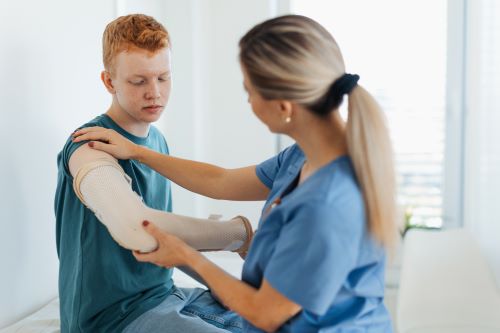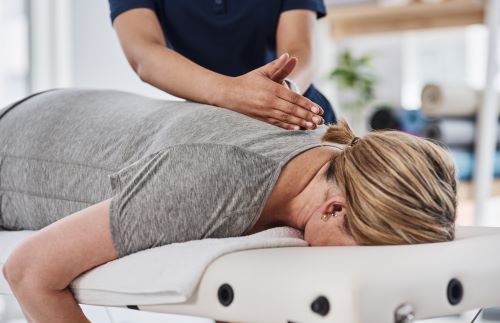When dealing with pain, discomfort, or mobility issues related to your bones, joints, or muscles, it can be difficult to know when it’s time to seek professional help. Orthopedic doctors specialize in diagnosing and treating conditions related to the musculoskeletal system, which includes bones, joints, ligaments, tendons, and muscles. Ignoring the signs can lead to further complications and long-term damage. Consulting an experienced orthopedic doctor can help diagnose and treat these issues before they worsen. Finding a skilled Atlanta orthopedic specialist can make a significant difference in your quality of life, whether you’re dealing with a chronic condition or an acute injury.
This guide will help you identify when it’s time to see an orthopedic doctor and what conditions and risk factors you should be aware of.
Common Signs You Should See an Orthopedic Doctor
If you’re experiencing issues with your bones, joints, or muscles that don’t resolve on their own, it may be time to consider seeing an orthopedic doctor. Here are the most common signs to watch for:
Persistent Pain and Discomfort
Pain that lasts for more than two weeks, especially chronic pain that affects your ability to move or perform daily tasks, is a key indicator that something may be wrong. Whether it’s in your back, neck, shoulders, hips, knees, or other areas, this pain could result from an injury, overuse, or a condition like arthritis. If medications or home remedies don’t bring relief, it’s time to seek professional help.
Limited Mobility and Function
Struggling with everyday activities such as walking, climbing stairs, or lifting objects can point to an orthopedic issue. This can stem from conditions like fractures, sprains, or arthritis, which limit your range of motion. An orthopedic specialist can assess the severity and recommend the best treatment options, including physical therapy or surgery.
Joint Pain and Stiffness
Inflammation and stiffness in your joints, particularly after rest or inactivity, could indicate conditions like osteoarthritis, rheumatoid arthritis, or gout. In addition to joint pain, persistent bone pain should not be ignored as it may indicate serious underlying health issues such as osteoporosis or even cancers. If joint pain is affecting your ability to move freely, an orthopedic doctor can offer solutions such as medication, injections, or in severe cases, joint replacement surgery.
Chronic Neck or Back Pain
Persistent neck pain or back pain is often linked to muscle strains, arthritis, or herniated discs. When neck and back pain doesn’t improve with time, it may lead to more serious complications, especially given the proximity to the spinal cord. Orthopedic specialists are trained to diagnose and treat these conditions effectively.
Deformities in Bones and Joints
Visible deformities such as bowlegs, knock knees, or scoliosis may result from congenital issues, injuries, or conditions like advanced arthritis. These deformities not only cause discomfort but can also affect your mobility. Orthopedic treatment options include bracing, physical therapy, and surgery to correct the alignment and improve functionality.
Sports and Work-Related Injuries
Injuries from sports or repetitive motion at work, such as sprains, fractures, or dislocations, are common reasons to see an orthopedic doctor. These injuries, if left untreated, can lead to long-term complications. Orthopedic specialists can provide treatment options to help you recover quickly and safely.
Numbness, Tingling, and Weakness
Symptoms like numbness or tingling in your hands, arms, legs, or feet may point to nerve compression issues, such as carpal tunnel syndrome or sciatica. Left untreated, these conditions can lead to permanent damage. An orthopedic doctor can evaluate the cause and recommend treatments to prevent further complications.
Sudden Symptoms or Injuries
A sudden onset of severe pain, swelling, or redness in a joint or limb could indicate a fracture, dislocation, or other serious conditions like a blood clot. If a sprain or other soft tissue injury does not improve within 48 hours, it is a sign that you should consult with a healthcare provider. Immediate attention from an orthopedic doctor is crucial to prevent worsening of the injury.
Failed Previous Treatments
If you’ve undergone treatments such as physical therapy or surgery but still experience pain or limited mobility, it might be time to revisit an orthopedic specialist. They can reassess your condition and explore alternative treatments to improve your quality of life.
Common Orthopedic Conditions and Risk Factors
Orthopedic conditions can affect anyone but tend to be more common with certain risk factors, particularly related to aging, activity level, and lifestyle choices. Here are some of the most common conditions and the factors that increase your risk.
Osteoarthritis
Osteoarthritis is a degenerative joint disease that occurs when the cartilage cushioning the joints wears down over time. It is particularly common in weight-bearing joints such as the hips and knees, leading to pain, stiffness, and limited mobility. Age is a significant risk factor, as cartilage naturally breaks down with time, but obesity, previous joint injuries, and repetitive stress from physical activity also contribute to the development of osteoarthritis.
Arthritis in Load-Bearing Joints
Arthritis often affects joints that bear the most weight, such as the hips, knees, and spine. These joints are subject to greater wear and tear, making them more vulnerable to degeneration and inflammation. In addition to age, being overweight can increase pressure on these joints, hastening the progression of arthritis. This condition can severely limit movement, making even basic tasks difficult without proper treatment.
Fractures and Dislocations
Fractures, broken bones, and joint dislocations are common orthopedic injuries resulting from falls, high-impact sports, or accidents. In some cases, orthopedic surgery may be necessary to ensure proper healing and restore function. Bones become more brittle with age, making older adults especially prone to fractures from even minor falls. Athletes or individuals who engage in physically demanding activities are also at higher risk for these injuries. Proper diagnosis and treatment are essential to ensure proper healing and prevent complications.
Tendon and Ligament Injuries
Tendon and ligament injuries, such as torn rotator cuffs or ACL tears, are frequent in both athletes and older adults. These injuries often result from overuse, sudden movements, or high-impact activities. Aging can also contribute to the weakening of tendons and ligaments, making them more susceptible to injury. Treatment can range from rest and physical therapy to surgery, depending on the severity.
Nerve Compression and Neurological Conditions
Conditions such as carpal tunnel syndrome, sciatica, and pinched nerves can arise from repetitive motions, improper posture, or age-related degeneration. An orthopedic physician can evaluate the cause of nerve compression and recommend treatments to prevent further complications. Nerve compression can lead to pain, numbness, and tingling, which, if untreated, may cause permanent nerve damage. Risk factors include jobs or activities that require repetitive hand or wrist movements, long periods of sitting, or prior injuries.
Gout and Other Joint Disorders
Gout is a form of inflammatory arthritis caused by a buildup of uric acid crystals in the joints, often affecting the big toe but also other joints. Risk factors for gout include diet (particularly foods high in purines), alcohol consumption, obesity, and certain medical conditions such as high blood pressure. Other inflammatory joint disorders may have similar triggers, such as autoimmune diseases like rheumatoid arthritis.
Contact an Experienced Atlanta Orthopedic Specialist Today!
If you’re experiencing persistent pain, limited mobility, or other orthopedic issues, don’t wait for the condition to worsen. At Georgia Spine & Orthopaedics, our team of experienced orthopedic doctors is dedicated to providing personalized care to help you get back to your best. Whether you’re dealing with a sports injury, or arthritis, or need specialized treatment, we’re here to offer expert solutions tailored to your needs.
Schedule an appointment at 678-929-4494 today and take the first step toward a pain-free, active lifestyle!






